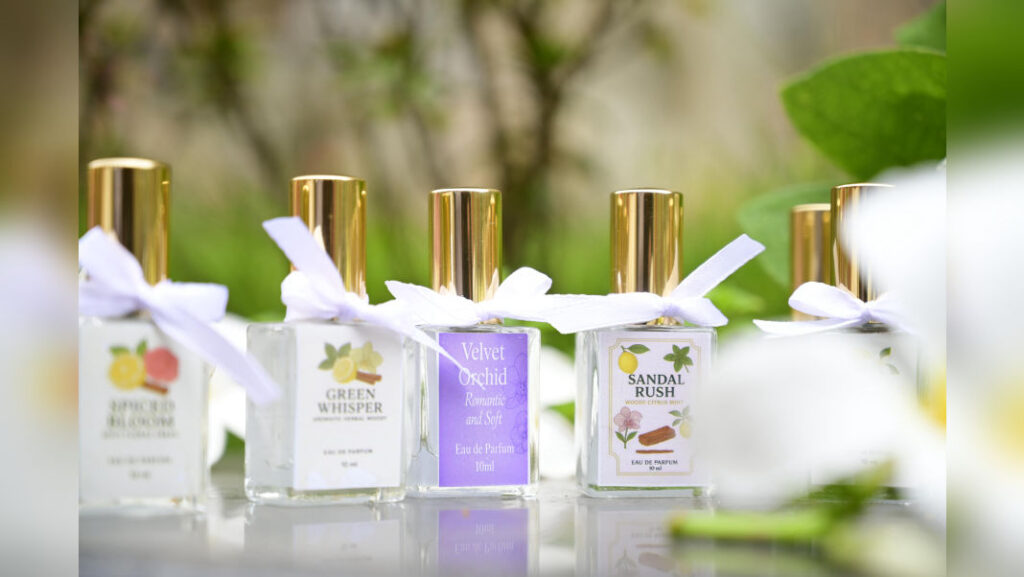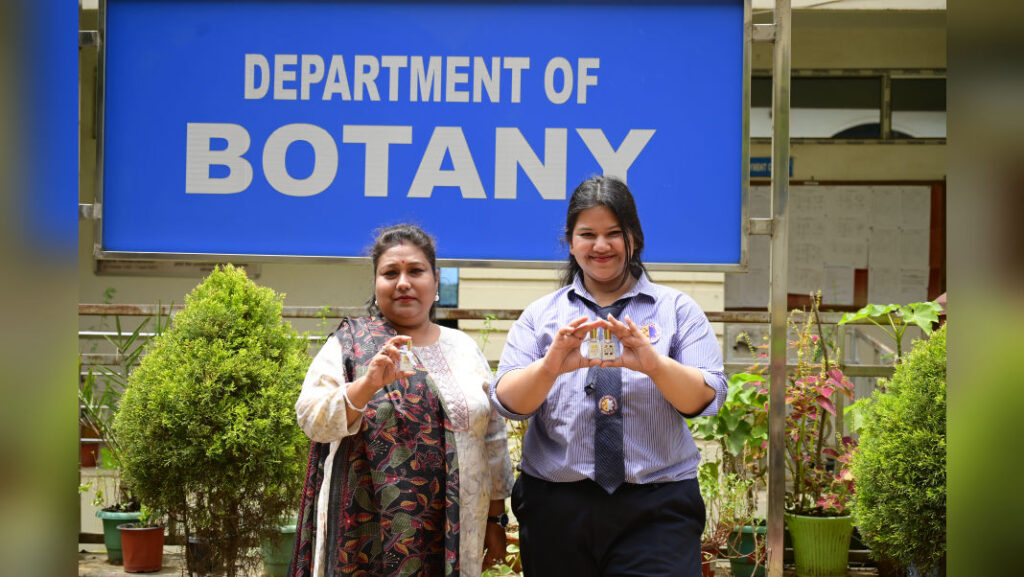Guwahati, June 19: Why settle for synthetic perfumes when nature offers a safer, more sustainable choice? As awareness grows around what we put on our skin, organic perfumes—made from natural, chemical-free ingredients—are emerging as a fragrant alternative to mainstream fragrances.

One such innovation is taking shape at USTM, Meghalaya. A botany student from the University of Science and Technology Meghalaya (USTM) has successfully crafted a unique, organic perfume that captures the essence of Northeast India’s rich biodiversity.
Miss Archi Phukan, an M.Sc. 4th semester student in the Department of Botany, developed the perfume under the mentorship of Dr. Mautushi Das, Associate Professor at USTM. Her formulation draws from locally sourced citrus fruits like kaji nemu and robab tenga, wild orchids, flowers, and native spices—each ingredient chosen for its aroma, purity, and cultural resonance.
“Actually, we wanted to explore how local citrus varieties could work in perfume,” explained Dr. Das. “Fruity fragrances have high market appeal, especially among Gen Z users. And all our ingredients are fully organic—no chemicals, no synthetics.”
Her formulation draws from locally sourced citrus fruits like kaji nemu and robab tenga, wild orchids, flowers, and native spices—each ingredient chosen for its aroma, purity, and cultural resonance.
Unlike conventional perfumes, organic perfumes are created using plant-based essential oils derived from organic or sustainably harvested sources. They are free from synthetic additives, phthalates, and artificial fixatives, making them not only gentler on the skin but also kinder to the planet.
Phukan’s perfume combines earthy undertones, tangy citrus top notes, and a delicate floral freshness—evoking the lush, rain-soaked landscapes of Assam. Sourced from the wild and local farms, many of the ingredients also reflect traditional uses in Assamese folk practices.
“This is not just a perfume. It’s a celebration of Assam’s botanical wealth and cultural heritage,” Dr. Das added.

The project also highlights the growing synergy between academic research and grassroots sustainability. Essential oils are extracted through eco-conscious methods that minimize carbon footprint and support rural livelihoods—integrating science, tradition, and social impact.
USTM is now engaging with companies interested in bringing the product to market. With promising early responses, the university is optimistic about scaling up production and developing a broader range of organic, regionally inspired fragrances.

